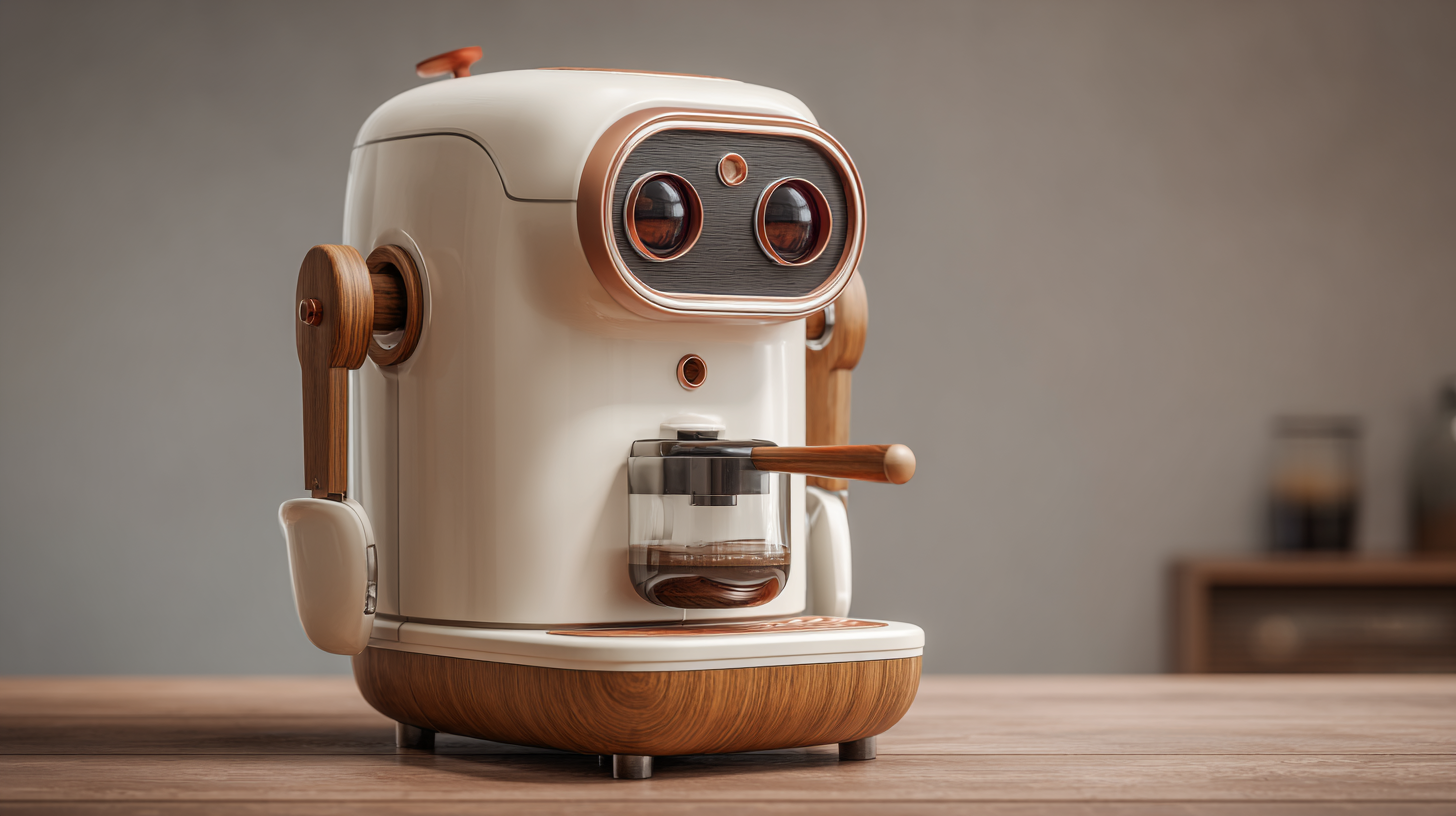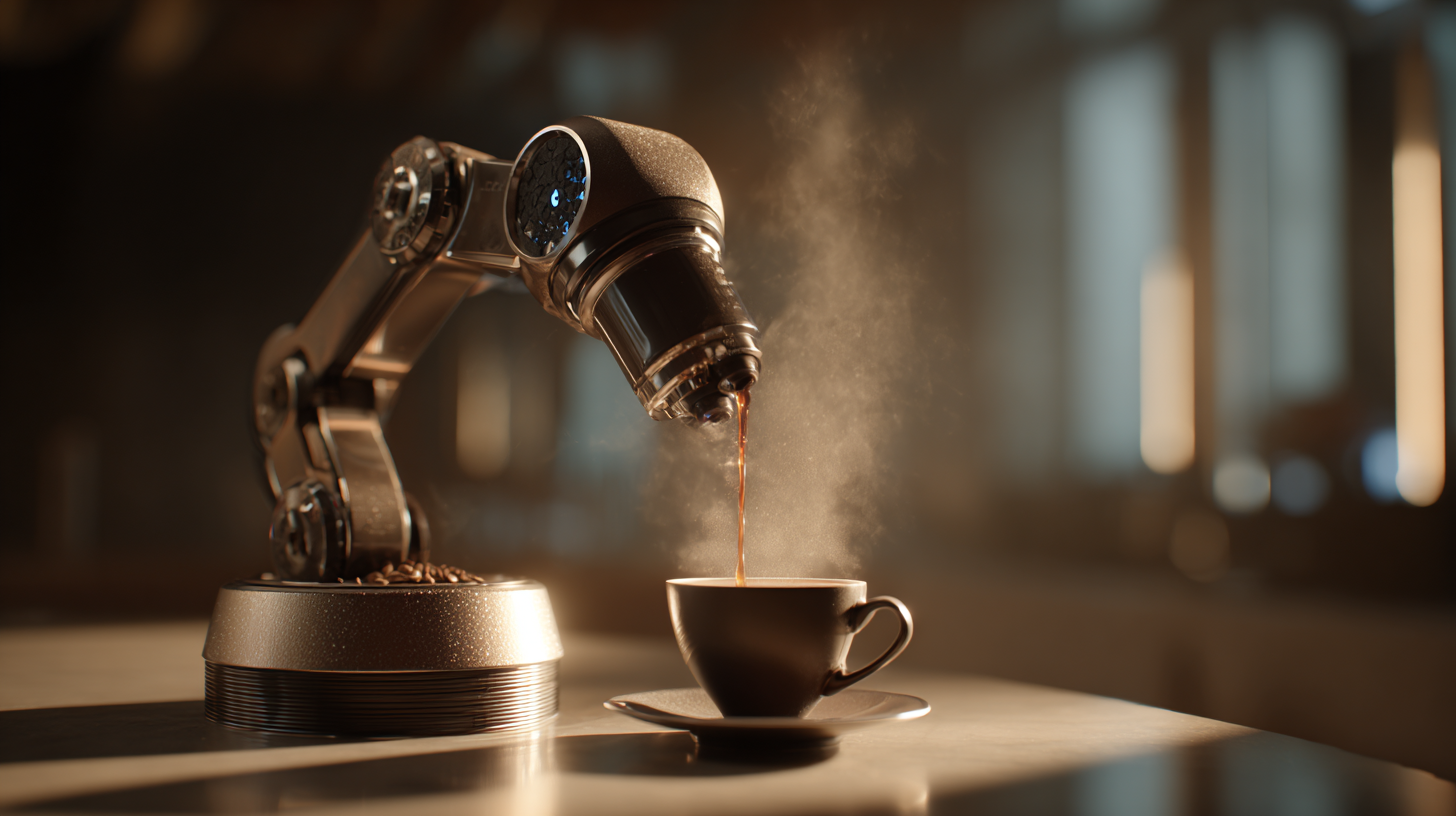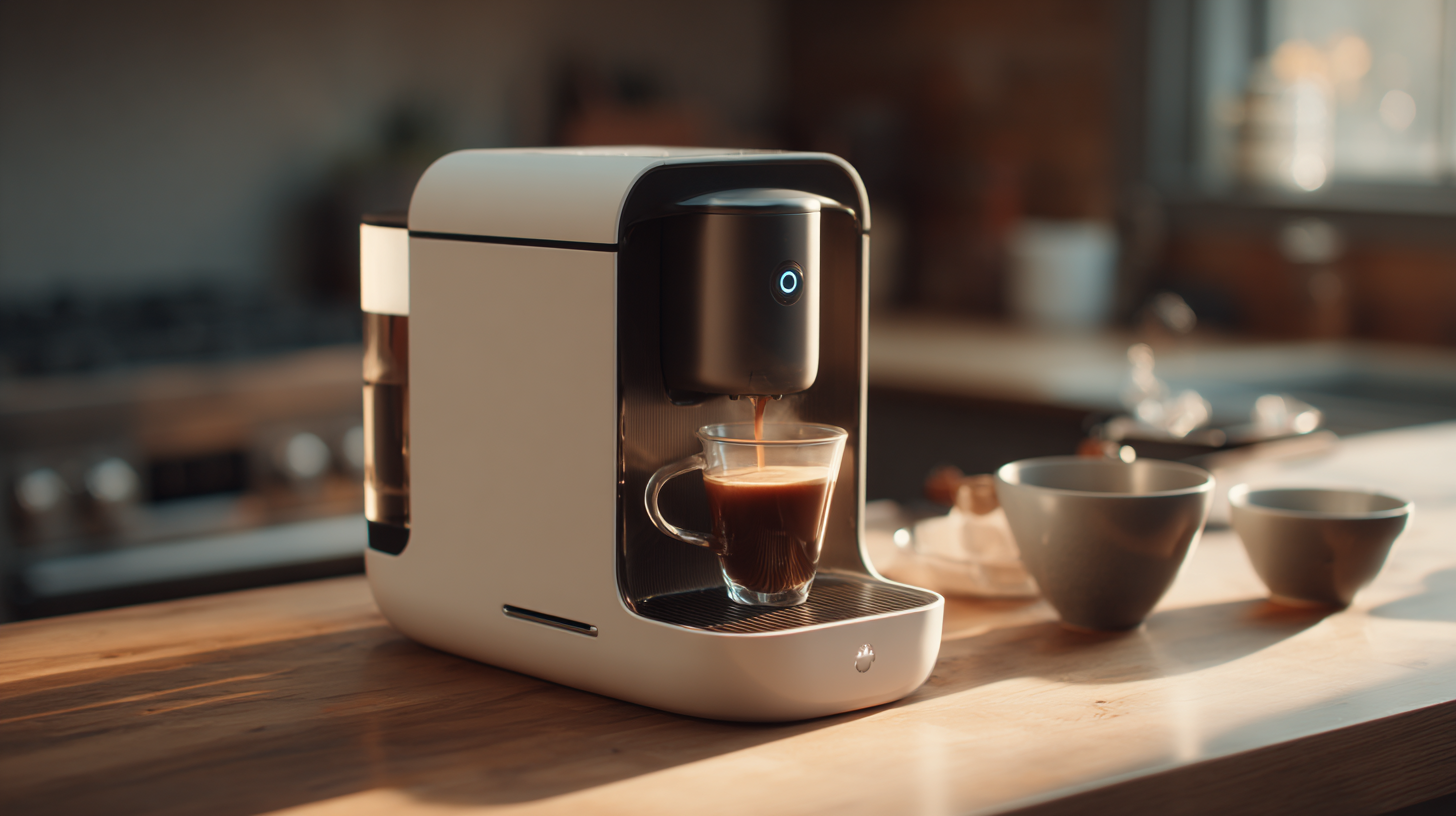Bankim Nagar, Siliguri, West Bengal
- GST NO. : 19BHDPS7640K1ZR
Discover the Future of Brewing: How Coffee Robots Revolutionize Your Morning Routine
In an era where technology continues to reshape our daily lives, the coffee industry is no exception. The advent of "Coffee Robots" marks a significant shift in how we brew our morning cup of joe, ultimately enhancing convenience and consistency. According to a recent report by Allied Market Research, the global coffee machine market is projected to reach $38.2 billion by 2025, with automated and robotic systems playing a crucial role in this growth. This surge is driven by a growing demand for time-saving solutions and the desire for perfectly brewed coffee at home and in commercial spaces.
Coffee robots are not just a novelty; they represent a fusion of culinary art and advanced technology, redefining the coffee experience. By employing precision robotics and artificial intelligence, these machines can deliver barista-quality beverages with minimal human intervention. Research from the National Coffee Association indicates that around 77% of coffee drinkers in the U.S. prefer specialty coffee, further amplifying the necessity for innovations in brewing technology. As consumers seek more personalized and elevated coffee experiences, the integration of coffee robots into everyday routines promises to revolutionize the morning ritual, making high-quality coffee more accessible than ever before.

The Rise of Coffee Robots: Market Trends and Consumer Adoption Rates
As the landscape of coffee preparation evolves, the rise of coffee robots presents an exciting trend reshaping our morning routines. With the advancement of technology, consumer adoption rates for these automated brewing systems have surged. According to market research, not only are coffee enthusiasts eager to embrace these innovations, but even the casual drinkers find the convenience and customization appealing. The ability to program various brewing styles, temperatures, and strengths at the touch of a button has made these robots a staple in modern kitchens.
When considering incorporating a coffee robot into your routine, it’s essential to evaluate your needs. Tips for selecting the right model include checking for versatility—look for machines that can brew different types of coffee, from espressos to cold brews. Additionally, pay attention to user-friendly interfaces, as a complex machine can hinder your enjoyment of a simple cup of coffee. Lastly, investigate connectivity features; some coffee robots now offer smartphone apps that allow you to start brewing from anywhere, enhancing convenience in your busy mornings.
As consumer interest continues to grow, the market for coffee robots is evolving rapidly. Businesses are capitalizing on this trend by offering a wider range of products tailored for various lifestyles and preferences, making it easier than ever for users to find a perfect match for their coffee brewing needs.
Discover the Future of Brewing: How Coffee Robots Revolutionize Your Morning Routine
| Year | Market Size (Million USD) | Growth Rate (%) | Consumer Adoption Rate (%) | Key Features |
|---|---|---|---|---|
| 2020 | 150 | 15 | 10 | Automated brewing, Smart app connectivity |
| 2021 | 200 | 33 | 20 | Voice control, Customizable profiles |
| 2022 | 300 | 50 | 35 | AI brewing optimization, Integration with smart home systems |
| 2023 | 450 | 50 | 50 | Automatic maintenance alerts, Recipe sharing community |
Innovative Technologies in Coffee Brewing: A Look at AI and Automation
The integration of innovative technologies such as artificial intelligence (AI) and automation is transforming the coffee brewing landscape, promising to enhance both the flavor and efficiency of our morning rituals. According to a recent report by Research and Markets, the coffee machine market is expected to grow significantly, with automation technologies driving a CAGR of 7.5% through 2026. This surge is attributed to consumer demand for precision and convenience in their brewing processes.
AI-powered coffee machines are particularly noteworthy as they learn user preferences and adapt brewing methods accordingly. For instance, Barista Bots are now able to analyze variables like water temperature, grind size, and brewing time to consistently produce the perfect cup every time. A survey conducted by Statista indicates that over 50% of consumers are willing to invest in smart coffee machines that incorporate such technology, emphasizing a clear trend towards automation in daily coffee-making routines. As these advancements continue to emerge, they pave the way for a more personalized and enjoyable coffee experience, fundamentally reshaping how we start our days.

Impact on Coffee Quality: How Robots Ensure Consistency and Flavor Profile
The advent of coffee robots marks a significant evolution in how we brew our morning beverage, offering a level of precision that is often unattainable through traditional methods. These automated machines utilize advanced technology to monitor various brewing parameters, such as water temperature, brewing time, and grind size, ensuring that each cup of coffee is brewed to perfection. This ability to meticulously control the brewing process addresses common issues faced by home brewers, such as inconsistencies in flavor and strength that can arise from human error.
Moreover, coffee robots are designed to replicate the ideal flavor profile while maintaining consistency across multiple brews. By employing sensors and algorithms, they are capable of adapting to different coffee beans and variations in water quality, ensuring that the characteristics of each specific blend are preserved. This technological intervention not only enhances the overall quality of the coffee but also elevates the consumer experience, allowing coffee lovers to enjoy barista-level brews from the comfort of their own homes. As these machines continue to advance, the future of coffee brewing promises to deliver even greater consistency and flavor, making every morning ritual a delight for the senses.

Environmental Sustainability: Analyzing Energy Efficiency of Coffee Robots
The advent of coffee robots marks a significant shift in our morning routines, not only enhancing convenience but also promoting environmental sustainability. These automated brewing machines are designed to optimize resource consumption, ensuring that every cup of coffee is brewed with minimal waste. By utilizing advanced technologies, coffee robots can precisely measure the amount of coffee grounds and water needed, reducing excess usage and promoting efficient brewing processes.
Additionally, many coffee robots are integrating energy-efficient components that minimize electricity consumption. They often feature programmable settings that allow users to set brewing times and temperatures tailored to their preferences, which reduces the need for constant energy supply. Coupled with a focus on using materials that are sustainable and recyclable, these robots reflect a growing trend in eco-conscious consumerism. As the demand for sustainable solutions increases, the role of coffee robots in reshaping our brewing habits emphasizes the importance of energy efficiency in everyday appliances.
Future Predictions: The Potential Growth of Automated Coffee Solutions in Households
The global coffee machine market, valued at approximately $7.05 billion in 2023, is projected to reach $7.36 billion in 2024, indicating a robust compound annual growth rate of 5.10% through 2031. This growth is largely driven by the rising coffee consumption among populations, which reflects a cultural shift towards personalized and high-quality brewing experiences at home. The expansion of household coffee brewing represents not merely a trend but a movement towards automation, as more consumers seek convenient and efficient ways to savor their morning brew.
Automated coffee solutions are at the forefront of this revolution, bringing innovative robotics into kitchens around the world. These systems promise to enhance the brewing process, allowing users to customize their coffee according to individual taste preferences while minimizing effort. As technology continues to evolve, the integration of advanced features such as smart connectivity and artificial intelligence in coffee machines is expected to further accelerate their adoption in households. This technological advancement is transforming morning routines, making freshly brewed coffee more accessible and enjoyable for coffee enthusiasts, ultimately changing the landscape of home brewing forever.

